
Christians mark Christmas in Bahrain with prayers, expressions of gratitude
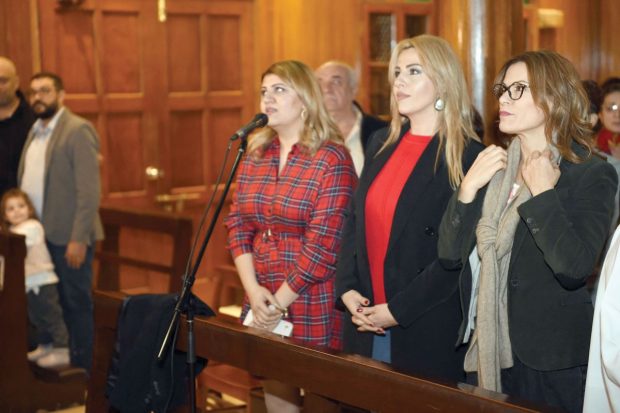
By Habib Toumi
Manama: Christians from several communities in Bahrain have celebrated Christmas Eve in a joyous spirit and amid expressions of gratitude for the tolerance they enjoy in the overwhelmingly Muslim country.
Hundreds of Christians gathered at the various churches in Bahrain where they prayed for peace and serenity across the world while malls set up giant Christmas trees with hundreds of light balls, in different colors, spiraled around them.
“The celebration of Christmas in Bahrain is not different from the celebrations that take place in Christian countries,” Father Saba Hidossian, from the Greek Orthodox Church, said.
“We celebrate here with love, affection and peace, and everyone participates with us. Christmas here has a beautiful and distinctive sentiment because we feel that we celebrate amid our families and our people and we do not feel that we are strangers, he told the local media.
The priest has been in Bahrain for ten years.
“I never felt any form of alienation, so I pray to God, on the occasion of Christmas, to preserve this country, its rulers and its kind people.”
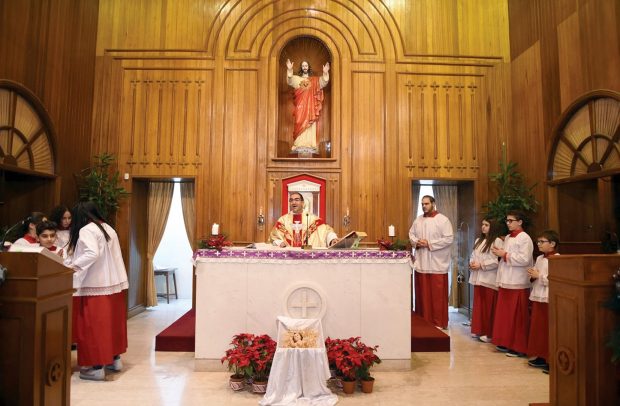
Father Fayad Charbel, from the Sacred Heart Church, a Roman Catholic parish in Manama, said the church celebrated Christmas in Manama and in several areas in the Kingdom.
“In this beautiful country, we have learned that there is no difference between religions and our celebration of Christmas always witnesses the participation of all denominations in the Kingdom. Therefore, here you see in the heart of the Church various groups of Bahrainis, Christians and different communities; indeed, this is a beautiful and wonderful country,” he said.
“Therefore, on this glorious day, we pray to God to protect this beloved country and that peace prevail across the world.”
Jennifer, a Lebanese expatriate who has been living for years in Bahrain said that she never felt out of place in the Kingdom.
“I have been here for a very long time. I feel that it is my first country, a country that respects me and respects my religious rituals with great pleasure,” she said.
“On the occasion of the glorious feasts, the family meets with friends and loved ones, and Santa Claus distributes toys and gifts to the children so that their hearts can rejoice. In the evening, we go to the church for Mass and prayers.”
Another Lebanese, Leema, said that she was grateful to God “for the blessing of freedom that we enjoy in this country, as we perform all our celebrations in absolute freedom.”
“On this glorious occasion, there was a remarkable participation by our Muslim brethren in the Mass. This is what distinguishes Bahrain and its people,” she said.
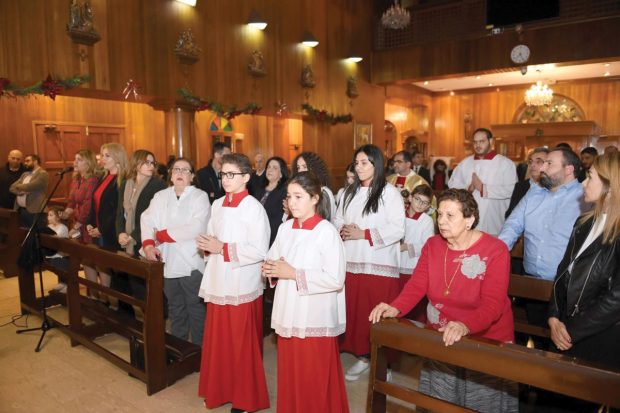
Most Christian families arrived in Bahrain late in the 19th century, mainly from Iraq and Turkey. They were followed in the 1940s by more Arab Christians, mostly from Syria, Lebanon, Egypt, Palestine and Jordan, who came to work as teachers, doctors and businessmen.
According to the Christian community, Bahraini Christians constitute around 1% of the total population, but the number of Christians from other nationalities, living and working in Bahrain, is over 100,000.
Bahrain has 19 registered churches. The first Christian church was built in 1905 by American missionaries soon after their arrival. A year later, the National Evangelical Church became the first church to offer services in Bahrain.
There are currently two Roman Catholic churches: The Sacred Heart Church in Manama, and the Catholic Church of Our Lady of the Visitation in Awali, in central Bahrain.
Under the reforms launched by King Hamad bin Isa Al Khalifa soon after he became the ruler of the country in 1999, the right to religious freedom is guaranteed by law and is enshrined in the Kingdom of Bahrain’s Constitution.
Article 18 states: “There shall be no discrimination among citizens on the basis of sex, origin, language, religion or creed” while Article 22 states that “freedom of conscience is absolute. The state guarantees the inviolability of worship, and the freedom to perform religious rites and hold religious parades and meetings in accordance with the customs observed in the country.”
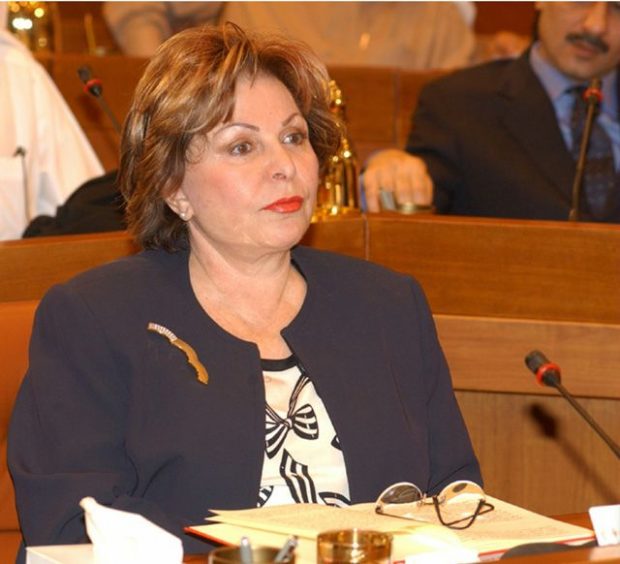
Alice Thomas Samaan in July 2011 became the first Christian woman ambassador from Bahrain to be appointed Ambassador to the United Kingdom.
She had previously made history by becoming in 2005 the first woman to chair parliamentary sessions in the Arab world.
Another Bahraini woman, Hoda Ezra Nonoo also made history when she became in 2008 the first Jewish ambassador from an Arab and predominantly Muslim country to be appointed to the US.
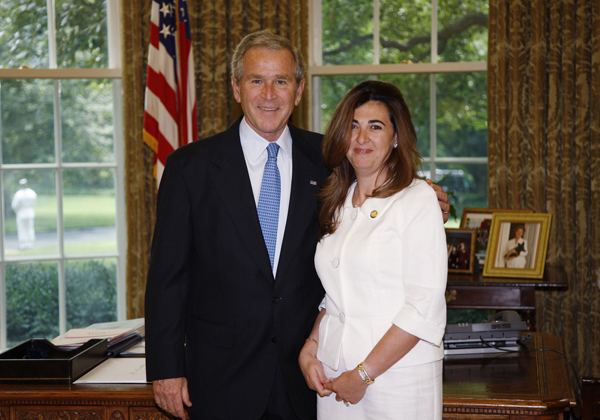
This businesswoman turned diplomat was also the first non-Muslim woman to head a human rights society and the first Jewish woman Member of Parliament in Bahrain.
Bahrain is home to around 40 Jews, mostly descendants of families who came from Iraq, Iran and India and who settled in the island kingdom in the early 1900s. They have an officially registered synagogue and a Jewish cemetery.
In 2017, King Hamad in an opinion piece “Dispelling ignorance, the enemy of peace” published by the Washington Times, stressed the significance of religious freedom in Bahrain.
“As Bahrainis, we drew from our national heritage as a beacon of religious tolerance in the Arab world during a time when religion has been too frequently used throughout the world as a divine sanction to spread hate and dissension,” he said.
“Yet in Bahrain, religious diversity is a blessing to our people. We welcome our Catholic, Orthodox and evangelical church communities. We are proud that our Hindu nationals can worship in a 200-year-old temple complete with their images, just around the corner from the Sikh temple and the mosques.
“We celebrate our small — but precious — Jewish community, who feel free to wear their yarmulke and worship in their own synagogue, which, we are informed, is the only one in the Arabian Peninsula. In fact, our Jewish community plays a very active role at the highest levels of society.
“We wanted to protect our religious pluralism for future generations, so we have enshrined this in law, which guarantees everyone the right to worship unhindered in safety and to build their houses of worship.”


